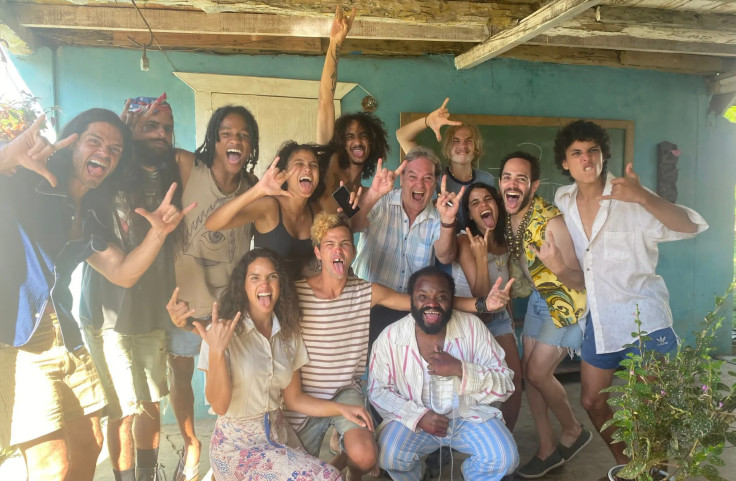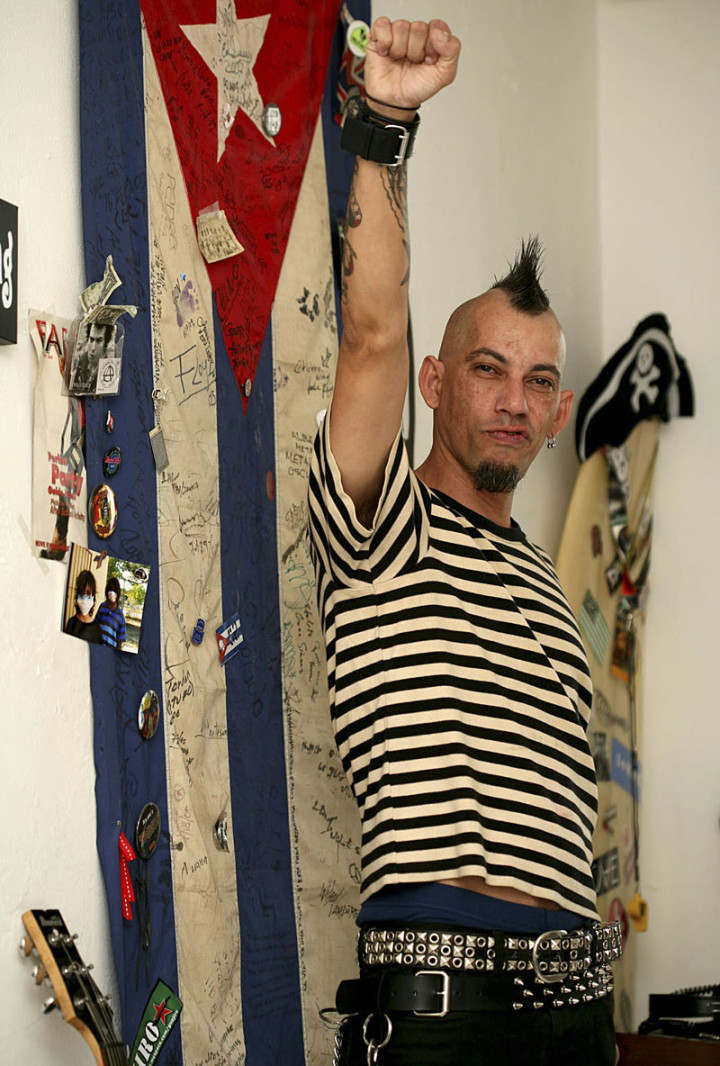
In the early 90s, in a Cuba shadowed by the collapse of the Soviet Union and the consequential dire scarcity, a remarkable counterculture emerged: Los Frikis. These youths, enamored with punk rock and burdened by repression, made an unthinkable choice—to intentionally inject themselves with HIV.
Their story, paradoxically both heart-wrenching and inspiring, has recently been captured in the film "Los Frikis," featuring Adria Arjona, and the Cuban actors Héctor Medina and Eros de la Puente.
Directed, written, and produced by Tyler Nilson and Michael Schwartz, the movie, unveiled at the Miami Film Festival, garnered thunderous applause, a stark contrast to the grim reality it portrayed.
The real Los Frikis
The Cuban youngsters rebelling against the Castro regime's repression and scarcity found solace in punk rock, a genre, as well as all the songs in English, deemed "the enemy's music" and banned in the country. In a society where rock music equated to rebellion, these teenagers created a subculture that was both romantic and defiant, albeit laced with violence. They became known as 'los frikis', from the English word freak. They were the weird ones.
One such Friki, Papo La Bala, became an iconic figure; his story inspired Nilson and Schwartz's film.

Cuba's Special Period, marked by intense scarcity, saw these youngsters living on the fringes, their frustration and isolation growing.
Amidst this, some frikis observed a paradox: patients in state-run sanatoriums for HIV-positive individuals seemed to live better lives than they did, with adequate food and freedom to express themselves. This observation led to a shocking and tragic decision: to self-inject with HIV to gain access to these facilities.
This radical choice wasn't made in full awareness of the disease's brutality. Many Frikis believed in a conspiracy theory that Fidel Castro was hiding a cure for AIDS.
The last friki
In an interview with Vice, Gerson Govea, identified as the last surviving original member of Los Frikis, expressed that "punk rock's nonconformity resonated deeply" with him, and "the idea of getting a better life, even if it meant contracting HIV, seemed worth the risk."
In the sanatoriums, life for these HIV-positive rockers was a bizarre mix of bleakness and freedom. They continued to live out their punk ethos, creating music with old Soviet equipment and homemade speakers. Govea remembers preferring the sanatorium to the streets, where they had nothing.
From despair to the Silver screen
The story of Los Frikis is now being told beyond Cuba's borders. There has been a play, different interviews, analysis, and a powerful podcast episode from Radio Ambulante.
Nilson and Schwartz, wrote, directed, and produced, with the help of Adria Arjona and Cuban-American producer Phil Lord (Spider-Man: Into the Spider-Verse), among others, the film "Los Frikis". The movie captures the essence of this unique and devastating Cuban rebellion.
The film, with its tender portrayal of human resilience amidst horror, has also managed to capture the invincible spirit of Latinos. The actors, including Arjona, Eros de la Puente, and Héctor Medina, delivered powerful performances, moving the audiences from laughter, to tears, to horror and laughter again. The movie is unnerving and inspiring; it is definitely unforgettable.
The soundtrack of "Los Frikis" fittingly includes music by iconic bands like the Rolling Stones and Nirvana, a nod to the musical influences that fueled this unique rebellion. It's a story that's not just about music or rebellion, but also about human survival, making it resonate with audiences worldwide.
The Frikis' tale, once confined to the margins of Cuban society, now finds itself on the global stage, a testament to the enduring power of music and the human spirit in the face of adversity.
© 2025 Latin Times. All rights reserved. Do not reproduce without permission.





